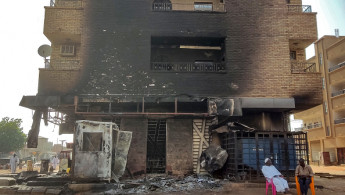Clashes reported in Sudan's capital on second day of ceasefire
Clashes between rival military factions could be heard overnight in parts of Sudan's capital, residents said on Wednesday, the second full day of a week-long ceasefire designed to allow for the delivery of aid and lay the ground for a more lasting truce.
The ceasefire, which is being monitored by Saudi Arabia and the United States as well as the warring parties, comes after five weeks of intensive warfare in the capital Khartoum and outbursts of violence in other areas of the country, including the western region of Darfur.
Residents of Omdurman, one of the three cities around the confluence of the Blue Nile and White Nile rivers that make up Sudan's greater capital, said there had been exchanges of fire late on Tuesday in several areas.
Heavy artillery fire could be heard near the Wadi Sayidna military base on the outskirts of the capital, they said.
Losing access to our Khartoum warehouse and its contents has life-ending consequences for Sudanese people.
— Javid Abdelmoneim (@DrJavidA) May 23, 2023
We had just finished allocating 40 tonnes of medical supply to support healthcare throughout the city…#sudan https://t.co/ShY3rt5qom
The ceasefire brought a relative lull in fighting in Khartoum earlier on Tuesday, though there has so far been little sign of a rapid scale-up in humanitarian relief, with aid workers saying that many of the supplies and staff arriving at Port Sudan on the Red Sea coast have been awaiting security permits and guarantees.
The fighting pits Sudan's army against the powerful paramilitary Rapid Support Forces (RSF), and erupted as plans for a internationally-backed political transition towards elections under a civilian government were set to be finalised.
Sudan was already facing severe humanitarian pressures before the conflict broke out on April 15, forcing more than one million people to flee their homes and threatening to destabilise the region.
The U.N. says that the number of people requiring aid has jumped to 25 million, more than half the population.





 Follow the Middle East's top stories in English at The New Arab on Google News
Follow the Middle East's top stories in English at The New Arab on Google News


